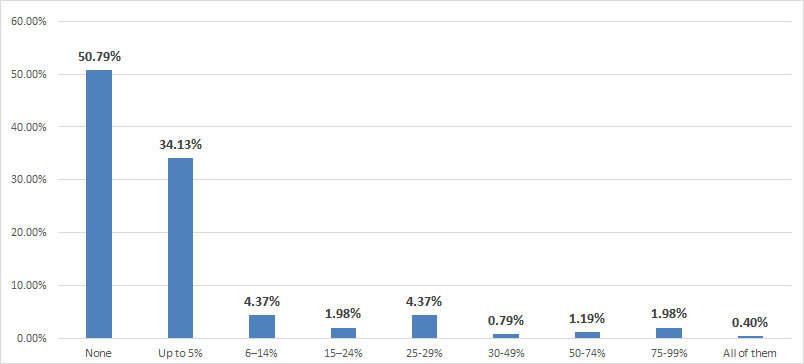Lean Manufacturing: The Answer To Shipping On Time

If missing delivery dates is a problem at your company, you are not alone. A recent survey of 250 small to medium sized manufacturing companies conducted by Exact revealed that almost 11% of the respondents shipped 25% or more of their orders late. A third of respondents said they shipped late on more than 5% of orders.
 Exact Chart on the Percentage of Orders in 2012-2013 That Did Not Deliver On Time
Exact Chart on the Percentage of Orders in 2012-2013 That Did Not Deliver On Time
The top five reasons cited for delayed shipments were:
— Waiting for raw materials from suppliers
— Not enough time to complete order
— Dependency on subcontractors
— Fluctuation in order volume
— Insufficient capacity
 Exact Chart on the Main Reasons Manufacturers Did Not Meet Delivery Expectations
Exact Chart on the Main Reasons Manufacturers Did Not Meet Delivery Expectations
On-time shipment performance can be improved by new supply chain systems solutions that improve visibility into both production and the supply chain. They keep managers better informed of current and planned material availability. They can also keep tabs on the availability of critical resources like equipment and labor, as well as a clear view of production status and material flowing through the pipeline.
Technology is not the only answer, however. On its own, or added to new supply chain technology, lean helps solve supply chain problems.
Here are some of the ways lean helps get the right quantity of the right product to the right place at the right time:
Waiting for materials: Lean thinking means that you see a value stream extending beyond your four walls, helping you see the importance of supply chain relationships. When you and your supplier’s key people know each other, they will want to alert you sooner when problems crop up, problems that you may be able to help solve. With advance notice, you might be able to reschedule jobs that don’t require those materials. Likewise, when you quickly notify suppliers of changes on your side, they have more time to respond.
Not enough time planned for production: Lean emphasizes continuous improvement of process efficiency, value stream responsiveness, and shorter cycle time, reducing production time. Standard work makes a process more predictable, improving estimating accuracy. And the development of trust inherent in lean manufacturing means people provide real estimates, not what they think you want to hear.
Depending on subcontractors and suppliers: As mentioned above, your value stream encompasses your suppliers. Strengthening connections, improving information exchange, trust, and helping suppliers improve their operations are all lean fundamentals that produce a positive interdependency, not a negative dependency.
Fluctuations in order volume: With better communication with customers as well as suppliers, you get early warning when their needs change. You learn how to level production better and devise means of seasonal or short-notice hiring of reliable temporary workers.
Insufficient capacity: You don’t have to expand your plant or invest in more advanced equipment to create capacity. The goal of lean is to do more with what you have. Improved processes, faster cycle time and setup time, increased equipment uptime, and greater production velocity usually free up capacity.
When you apply lean thinking at your company, you improve on-time delivery performance. New systems and equipment may enhance your capabilities, but first, get the basics tuned up with lean. You make the best choices of technology — and won’t find out that you have just automated the unnecessary.
Exact is a global company specializing in solutions that streamline quoting, sales and purchasing, production, and inventory management for small- to medium-sized manufacturers and distributors.
Karen Wilhelm has worked in the manufacturing industry for 25 years, and blogs at Lean Reflections, which has been named as one of the top ten lean blogs on the web.
- Category:
- Industry
- Manufacturing
Some opinions expressed in this article may be those of a contributing author and not necessarily Gray.
Related News & Insights
Advanced Technology, Automation & Controls
Four Use Cases for AI's Growing Role in Manufacturing
Industry
November 25, 2024Data Centers
Gray Expands Reach with Dallas Office
Corporate News
November 14, 2024Manufacturing, Construction
The Evolving Role of Electric Vehicles in Sustainable Construction & Design
Industry
October 18, 2024